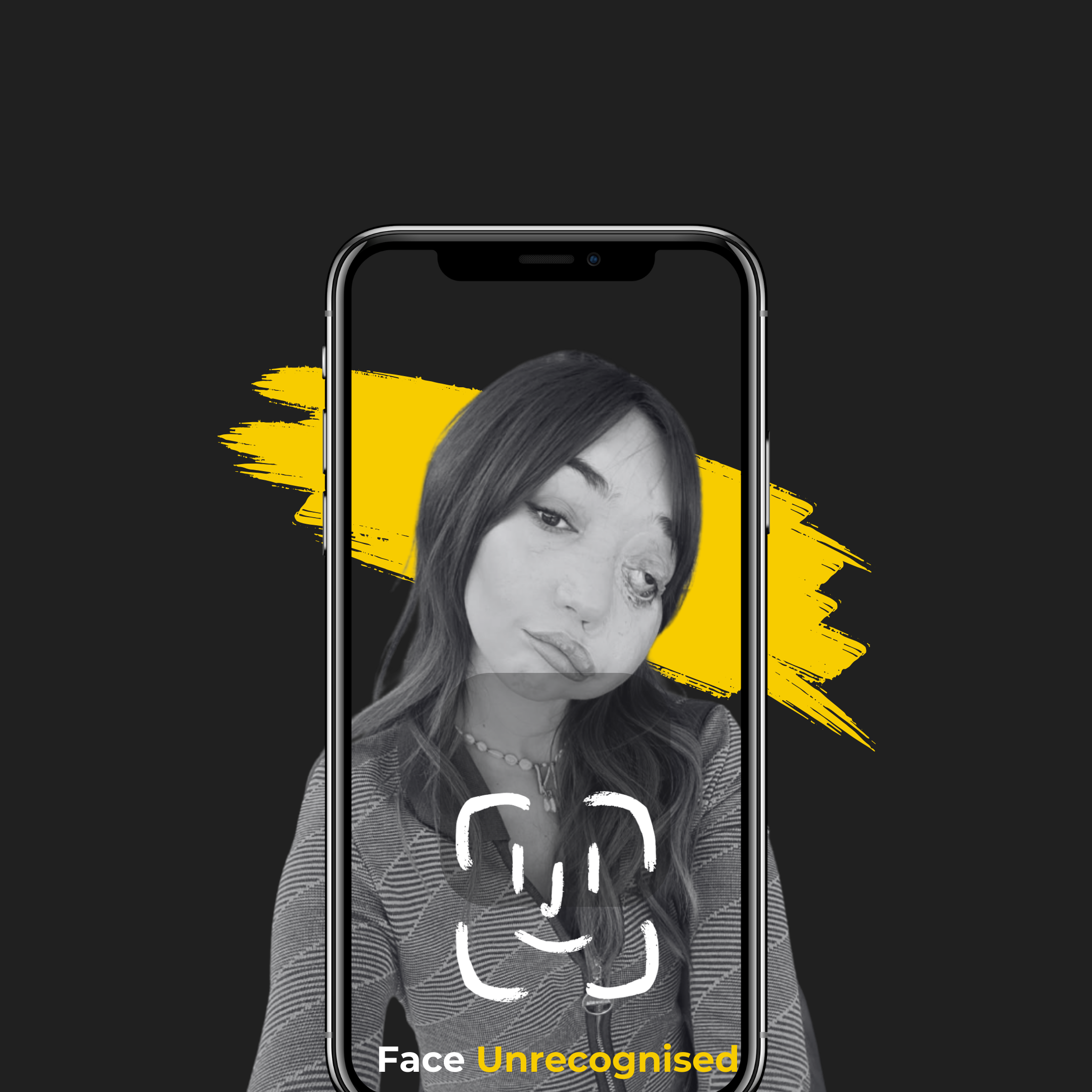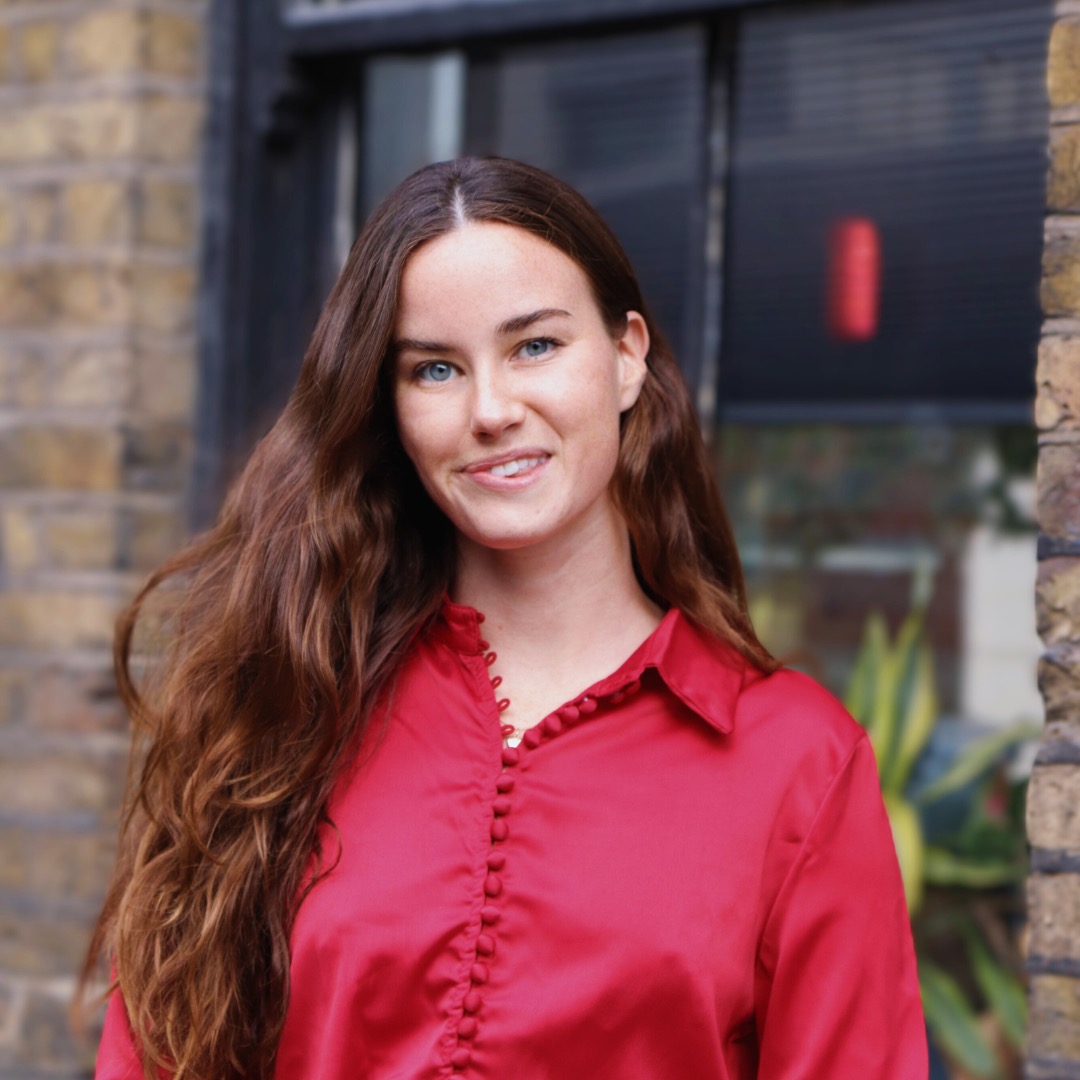Lee Jones
My name is Lee, my pronouns are they/them and it just so happens that we share something in common.
I also happen to have a BA in Fine Art as well as an MA in Visual Sociology Meanwhile if I am not at work or reading, you’ll find me in the kitchen kicking up a Storm or on facetime (hefo rhieni) with parents, ten points if you can guess where I was born-ha!
As today is our celebratory day, I wanted to share with you a sociological exploration of my journey into Higher education. I look forward to reading your comments.
I wanted to write this article to share another way of looking and reflecting upon inequality encountered by people with facial differences, as well as to explore self-awareness and acceptance.
Most probably, many of you have found yourselves in my shoes, wondering ”why me?”. Whether it be at school, on Valentine’s or Halloween, at college, University or work. The short yet mind numbing question of “why me?” has sidetracked me for as long as I can remember. Although I found it unimaginable at first, I think only a few like me have managed to associate “why me?” with a positive perspective.
But, it goes without saying that due to my abstract facial features and society at large I have – and will most probably continue to – encounter periods in my personal life where I experience forms of micro-aggression or discrimination. Which inevitably returns me to affirm and associate my facial paralysis with numerous negative public perceptions and connotations. That being said, I honestly find a positive perspective very helpful in counteracting such scenarios.
In regards to my positive perspective, it aligns with my ongoing interest in social-economic theories [1]. It also steers me to contemplate what I have evidently gained rather than lost as a result of having facial paralysis. In sharing my personal perspective of “why me?”, I will have hopefully helped change someone’s outlook of their future amidst the stark inequality that exists beyond our comfort zone.
Similarly to me, I assume that most readers consider their comfort zones as somewhere that is safe, familiar and supportive. Which inevitably at an early age, and over a prolonged period of time, would be the place where we recognise and regard as our home. Somewhere that naturally consists of a singular or multiple parent or guardian who unconsciously and/or consciously play a part in influencing values and life expectations.
So to make it clear from this point onwards, I am not about to insinuate that ‘a positive approach’ to learning at home and an improvement in parents can transform children’s life chances [2]. But rather focus on how ‘The material and socioeconomic dimensions of everyday lives are simply absent from parenting advice culture’ [3]. With greater emphasis on ‘The material and socioeconomic dimensions’.
Which is why I want to shine a light upon a few concepts by the French sociologist, Pierre Bourdieu. Specifically, Bourdieu’s concept of ‘habitus‘. Bourdieu stated that a ‘habitus’ is where ‘we develop consciously or unconsciously different strategies for organising our future actions, language, interests, fashion, ways of speaking and walking… (Most of which is learned or observed) … from parent (guardian) … to a child at an early age’ [4]. So how did this change my negative perspective of “why me?” into a positive one?
In order to unfold an answer to that question, I am going to briefly introduce and reflect upon yet again another of Bourdieu’s concepts, ‘fields’, as well as share snippets of my social economic background. Bourdieu’s theory of ‘fields’ implies that there are ‘various fields within the social world, and each field is a relational space of its own, dedicated to a specific type of activity’ [5]. To put it simply, Bourdieu’s ‘fields’ are more or less social infrastructure such as education, health care and law. Additionally, access and personal advancement within specific ‘fields’ is dependent on one’s ‘habitus’. So, from Bourdieu’s point of view, a ‘habitus‘ is somewhat of a predisposition when it comes to options, choices and expectations when entering varying ‘fields’.
As someone from a working-class background (‘habitus‘) with a Bachelor and Master degree, I was initially skeptical of Bourdieu because my working-class background and accomplishments contradict his theory. Furthermore, in relation to getting a degree, I found myself asking why I was the only one of two siblings to attend University. After contemplating this for a while, I had a eureka moment when I realised that I had a unique childhood in comparison to my siblings.
This has led me to believe that access and exposure to varying degrees of medical ‘fields’ at a young age were key to my future pursuit and getting my degree. So much so that if it weren’t for my diagnosis of a brain tumor and consequent frequent visits to healthcare and medical ‘fields’ [6], I have no doubt that similarly to my siblings and parents, I would have completed secondary school and pursued an occupation within the local labour market.
As far as how or why various medical ‘fields’ have had a lasting impact on me getting my degree, I present to you another of Bourdieu’s theories. According to Bourdieu ‘cultural capital presents itself in three different states: as embodied (dispositions and practices), institutionalized (educational qualifications), and objectified (cultural goods)’ [7]. Additionally, Bourdieu, ‘states that cultural capital is passed down from generation to generation through the habitus formed within the family origin’ [8]. To put it simply, an individual is arguably a social reproduction of one’s great grandparents i.e. social class, behaviour, influence etc.
I spent a long time within various medical ‘fields’, where a bout of operations and frequent consultations often coincided, interrupted or overtook me being at home. So much so that I gradually viewed everything and everyone within the medical ‘fields’ as extensions of my family and home (habitus). It resulted in my firm assumption and notion that my ‘cultural capital’ inevitably expanded.
So, having shown how a medical trauma expanded my ‘habitus’ as well as ‘cultural capital’, how – I hear you ask – has exposure to various medical/healthcare ‘fields’ ended up being a positive perspective within my journey of self-acceptance and awareness?
Well to answer that question, I will briefly touch upon the social model of disability and varying degrees of inequality, as well as my past experience and point of view. I hope that my perspective of having abstract features and disabilities will encourage as many of you to discover and appreciate your own personal perspective of having a facial difference and/or disabilities.
In case anyone isn’t aware of the social model of disability, the social model implies that individuals are ‘disabled by barriers in society, not by their impairment or difference. Barriers can be physical, like buildings not having accessible toilets. Or they can be caused by people’s attitudes to difference’ [9]. Which ultimately leads to an increase in inequality as well as a grim outlook of the future, if you happen to have a facial difference or/and disability. An outlook I carried with me on a daily basis during my teenage years.
As far as I can remember, there wasn’t a day where I wasn’t given a barrage of slurs from peers towards my facial paralysis or/and scars during secondary school. This was in sheer contrast to the barrage of affection and encouragement I received when staying or visiting various medical ‘fields’. Despite the daily sneers at school, teachers rarely took any action against anyone. More often the teachers would be just as bad. I have lost count of how many times I was told that I would never be as intellectual as my peers or that I would forever remain alone in the world. As a result, it was decided by the school board that it was in my so-called best interest to finish a year early. Consequently, I left secondary school with no formal qualifications and a narrow outlook of the future.
It seems from looking back on my journey post-secondary school I somewhat imitated the behaviour of a consultant or doctor. In that I adapted to the situation/problem of not having any qualification and pursued/contemplated multiple avenues of attaining a higher qualification as well as positive peer experiences. This is a result of the ‘cultural capital’ I gained from the healthcare/medical ‘fields’.
Overall, it led me to sign up to a night class of painting and drawing, enroll on a foundation course and, ultimately, attend University as an undergraduate and postgraduate student. As well as live in a city and work for the Royal Household for two years and recently, in the Police service.
In hindsight, despite the trauma I experienced in multitudes within and outside of secondary school and the inequality I have – and will continue to – encounter due to my abstract features, my experiences have led me to contemplate the existence of inequality more broadly and an eventual realisation of how fortunate I am.
I hope that by sharing my broad and creative exploration of a positive perspective of my abstract features and disabilities, it encourages you to seek your very own positive perspective on this International Day of People with Disabilities. And realise what you have gained in comparison to other people, including your relatives or loved ones. How your voice and experience can be a bridge to broadening an outsider’s view of living with a facial difference or/and disabilities, in the hope that it will bring forward a world where the social model of disability is a reality, and there is social equality for all.
Find more from Lee here @leejone9
——————–
References and Notes
1. Although I have an MA in Visual Sociology the research for this piece isn’t extensive or academic in format
2. Jensen, T., 2018. Parenting the crisis : the cultural politics of parent-blame, Bristol: Policy Press.
3. Jensen, T., 2018. Parenting the crisis : the cultural politics of parent-blame, Bristol: Policy Press.
4. Introduction to Pierre Bourdieu: Habitus. ‘Then and Now’ YouTube channel https://youtu.be/WvzahvBpd_A
5. 1st Edition
Bourdieu’s Theory of Social Fields
Concepts and Applications
Edited By Mathieu Hilgers, Eric Mangez
6. 1st Edition
Bourdieu’s Theory of Social Fields
Concepts and Applications
Edited By Mathieu Hilgers, Eric Mangez
7. Family (and) culture: The effect of cultural capital within the family on the cultural participation of adolescents
Mart Willekens, John Lievens
8. Family (and) culture: The effect of cultural capital within the family on the cultural participation of adolescents
Mart Willekens, John Lievens
Tags: Blog, disability, Face Equality, facial difference, inequality, philosophy, social justice, sociology, Story Posted by


